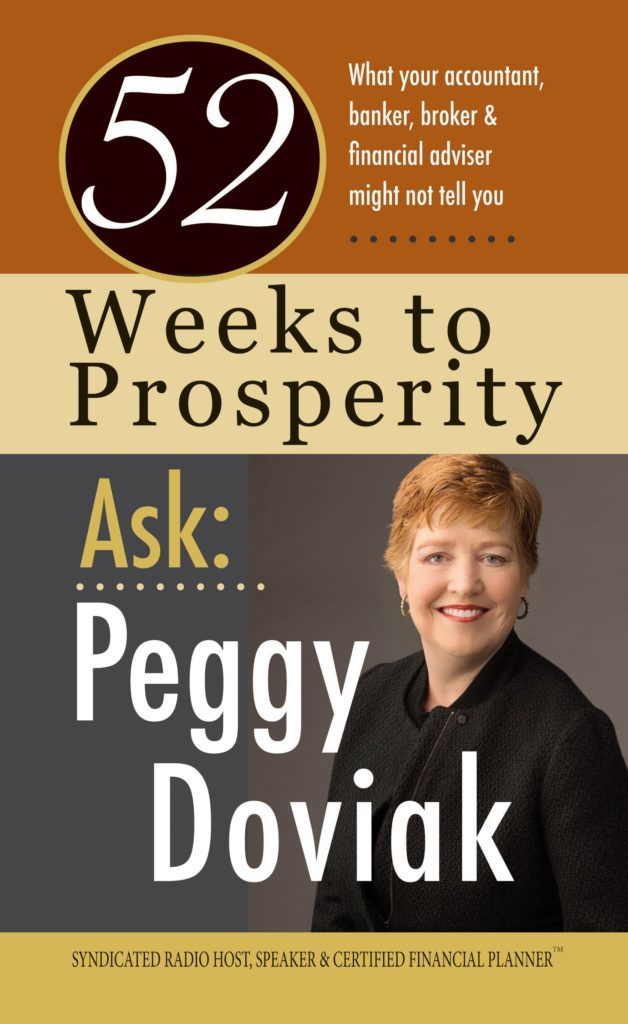This post may contain affiliate links. Full disclosure policy
THIS POST MAY CONTAIN REFERRAL LINKS. IF YOU CLICK THROUGH AND TAKE ACTION, I MAY BE COMPENSATED, AT NO ADDITIONAL COST TO YOU.
I bring you more sparkling wisdom from the very fierce and very wise Peggy Doviak, the same CERTIFIED FINANCIAL PLANNERTM practitioner that has shared insights on the Fierce blog like how to celebrate the holidays without blowing your budget, setting and achieving financial goals, and how to afford retirement.
I’m an enthusiastic fan of hers because she has helped my husband and I get our own finances in order and her book has brought us a treasure trove of inspiration as we plan for the future.
Why Does Everyone Else Seem to Have It All (and Have It All Together?)
Have you ever felt like everyone around you knew what they were doing? They were organized, eloquent, and polished. You, on the other hand, woke up late, put on a wrinkled shirt, and threw your hair up in a ponytail because you didn’t have time for a shower.
Sixteen years ago, when I opened my financial firm, I felt like that a lot. I was bombarded with articles, software, seminars, and experts. Everyone wanted to tell me what to do…for a nominal fee. It was overwhelming, so I muddled along as best I could.
I began listening for themes. Apparently, I needed an elevator pitch. An elevator pitch was a business description designed to convince people to work with me within the period of time it took me to ride the elevator with them. This would help me create my “brand.” A brand? Not only did I not have a brand, I didn’t even have clients!
There’s More To Life Than Getting Rich and Finding Happiness
With a bit of trepidation, I set out to create an elevator pitch. Plus, how cool would it be to have a brand?
What should I choose? I handled people’s money, so I played with the idea of being rich. “Be Rich!” No—it sounded like a television show on at 2 in the morning. “Live Richly!” No, that sounded too much like yachts and hats with gold braiding and anchors. None of that was me. Even worse, I hated the idea of telling people that my goal for them was to be rich. It felt wrong on many levels.
Not everyone is going to be rich. Sometimes, your career choice or other life conditions almost guarantee it. And that’s okay. Being rich is no guarantee of being happy; in fact, many people I know who appear to have plenty of resources are anxious or depressed. On the other hand, I have seen plenty of people without large bank accounts who seem content. No, focusing on the word “rich” wasn’t the right direction.
So I tried a different direction and toyed with the idea of focusing on the word “happiness.” Happiness is more internal, and didn’t seem as materialistic as “rich.” But the word didn’t really seem to be right either. Although I didn’t like the financial focus around being rich, being happy really had nothing to do with financial planning. It also felt a bit like a yoga studio or greeting card.
Building a Brand of Prosperity
One word really wanted my attention. “Prosperity.” Generally, I loved the word, but I didn’t want people to think it was a promise of gaining financial comfort without work. Although I am a believer in the power of positive thinking, some people take the concept too far. Gaining financial stability isn’t easy; you have to make good decisions every single day. But the word “prosperity” tapped into appealing concepts.
You see, prosperity isn’t limited to money. Prosperity also involves your friends and family, the work you do, your pets, and leisure activities that bring you joy. For example, you can’t measure the sense of accomplishment a teacher feels when a student understands a new topic. A hiker who reaches the mountain peak experiences elation. And holding a new baby is simply the best.
Prosperity is everywhere. After a long day at the office, I look forward to my cat meeting me at the door, welcoming me home with meows and head butts. My husband is happy to see me, too, but without the head butts! All these events, and more, make me prosperous.
Of course, prosperity also has a financial definition. Being prosperous involves having sufficient resources to live the life you want without fear of running out of money. Financial planning has a remarkably similar definition.
What to Ask Yourself When Creating A Prosperous Financial Plan
Many people don’t understand what comprises a financial plan. They think it’s their stock and bond portfolio, and maybe their life insurance. However, that’s only the beginning. The process also answers many questions including
- What are your financial goals?
- How much do you spend?
- What types of insurance do you need, and how much should you purchase?
- How does the tax code and financial legislation impact your actions?
- Do you have enough saved for retirement?
- How should you pay off debt?
- How do you invest your portfolio in a way to control risk and allow you to meet your goals?
- How can you take care of your family even after you’re gone?
Those questions boil down to one main goal: How can you save and manage financial resources in a way that helps you live your best life? More simply, your financial plan gives you a path to your financial prosperity.
Contentment and Love Instead of Dollars and Cents
My wish for you is my brand: I want you to have prosperity in your life—measured not just by dollars but by contentment and by love. At the end of the day, prosperity is mostly a mindset. You can focus on what you have, or you can stress and fret about your lack. When you are content with your life, you are prosperous–even if you aren’t tremendously wealthy and you woke up late!
Meet Peggy
 CERTIFIED FINANCIAL PLANNERTMpractitioner, Peggy Doviak, knows how stressful money can be. Her fifteen years as a financial planner and a national speaker to both financial professionals and consumers have convinced her that most people fear their money. That’s why she wrote 52 Weeks to Prosperity – Ask Peggy Doviak: What Your Accountant, Banker, Broker & Financial Adviser Might Not Tell You. In it, she addresses 52 financial planning topics to enable individuals to become comfortable with the vocabulary and issues of their financial lives, so they can participate in the planning process with a professional.
CERTIFIED FINANCIAL PLANNERTMpractitioner, Peggy Doviak, knows how stressful money can be. Her fifteen years as a financial planner and a national speaker to both financial professionals and consumers have convinced her that most people fear their money. That’s why she wrote 52 Weeks to Prosperity – Ask Peggy Doviak: What Your Accountant, Banker, Broker & Financial Adviser Might Not Tell You. In it, she addresses 52 financial planning topics to enable individuals to become comfortable with the vocabulary and issues of their financial lives, so they can participate in the planning process with a professional.
Learn more about Peggy on her website, www.peggydoviak.com.



